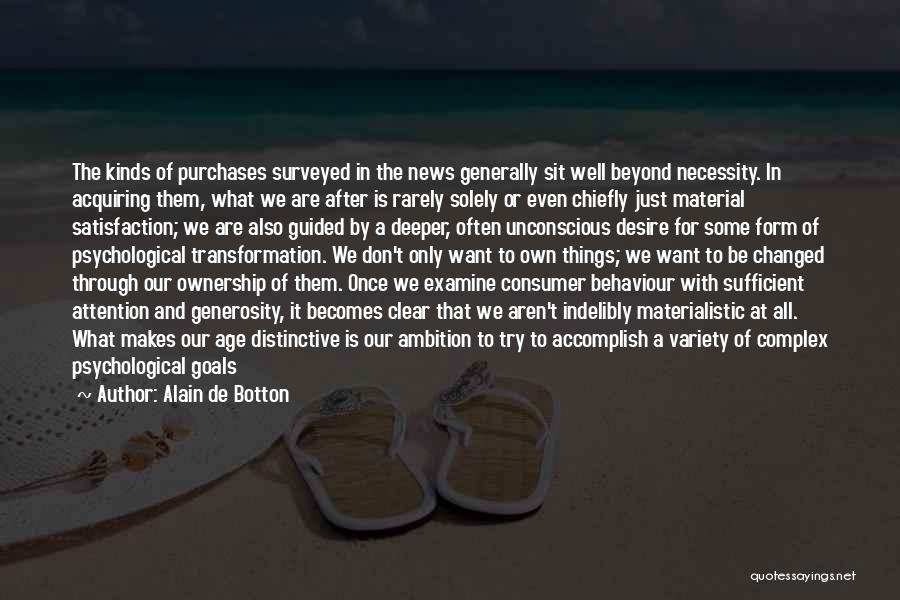Quotes & Sayings About Consumer Psychology
Enjoy reading and share 4 famous quotes about Consumer Psychology with everyone.
Top Consumer Psychology Quotes

...the higher the expectations about unselected alternatives, the lower the level of satisfaction with the chosen good. — Michael R. Solomon

Hedonism is not heroism for most men. The pagans in the ancient world did not realize that and so lost out to the "despicable" creed of Judeo-Christianity. Modern men equally do not realize it, and so they sell their souls to consumer capitalism or consumer communism or replace their souls - as Rank said - with psychology. Psychotherapy is such a growing vogue today because people want to know why they are unhappy in hedonism and look for the faults within themselves. Unrepression has become the only religion after Freud - as Philip Rieff so well argued in a recent book; evidently he did not realize that his argument was an updating and expansion of exactly what Rank had maintained about the historical role of psychology. — Ernest Becker

The kinds of purchases surveyed in the news generally sit well beyond necessity. In acquiring them, what we are after is rarely solely or even chiefly just material satisfaction; we are also guided by a deeper, often unconscious desire for some form of psychological transformation. We don't only want to own things; we want to be changed through our ownership of them. Once we examine consumer behaviour with sufficient attention and generosity, it becomes clear that we aren't indelibly materialistic at all. What makes our age distinctive is our ambition to try to accomplish a variety of complex psychological goals via the acquisition of material goods. — Alain De Botton

Indisputably we live in a shaped reality, an artificialism. Most people who grasp this are thinking only at a consumer-level, of the "things" they like and need and feel impelled to acquire. But our societal and political arrangements are just as much manipulations of game-pieces and rules as is any Atari or Sega product. The subliminal psychology that drives people to become addicted to games, not to be able to see over the edges of their labyrinths, is transferable to any field whatsoever. — Kenny Smith





